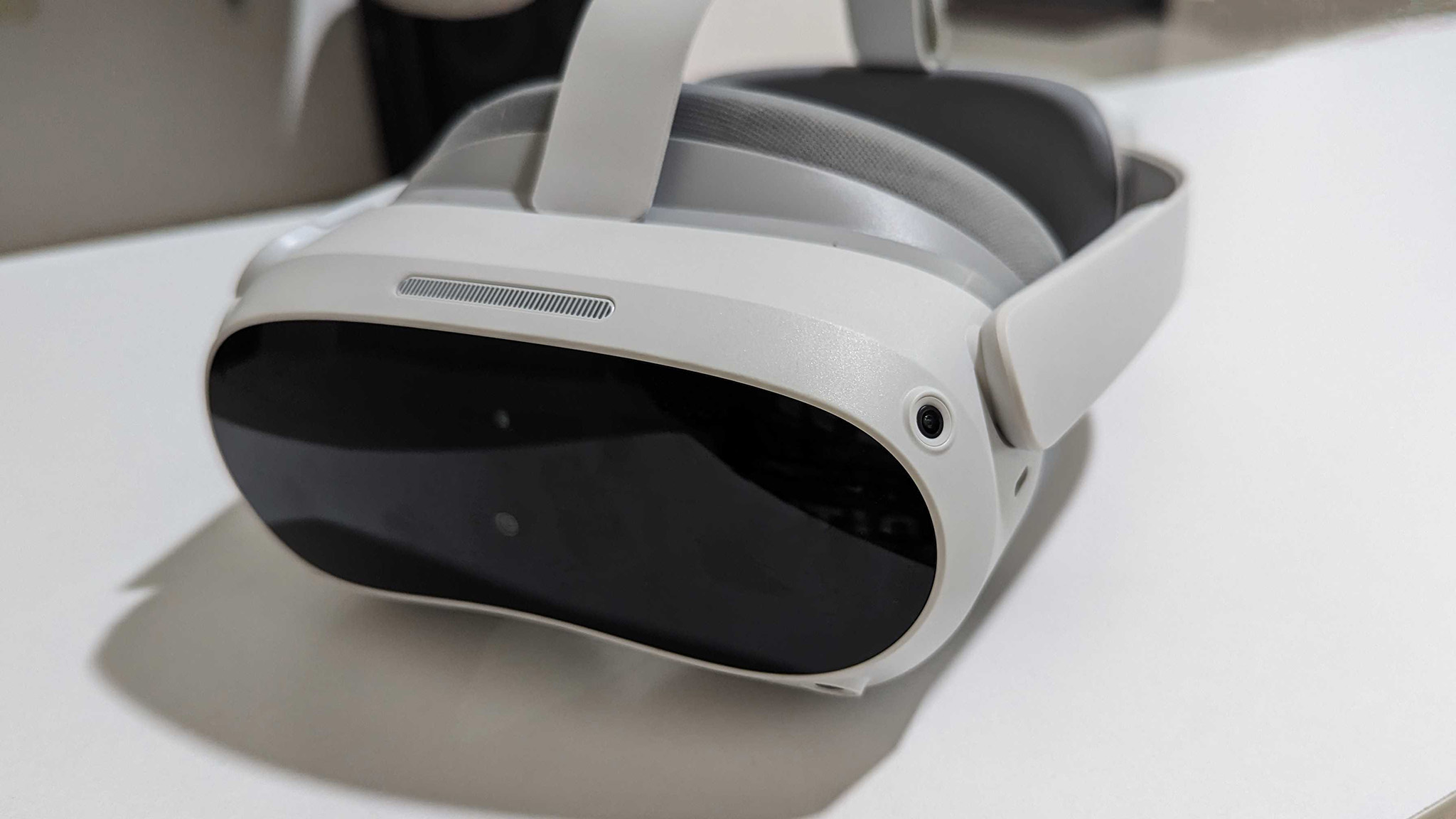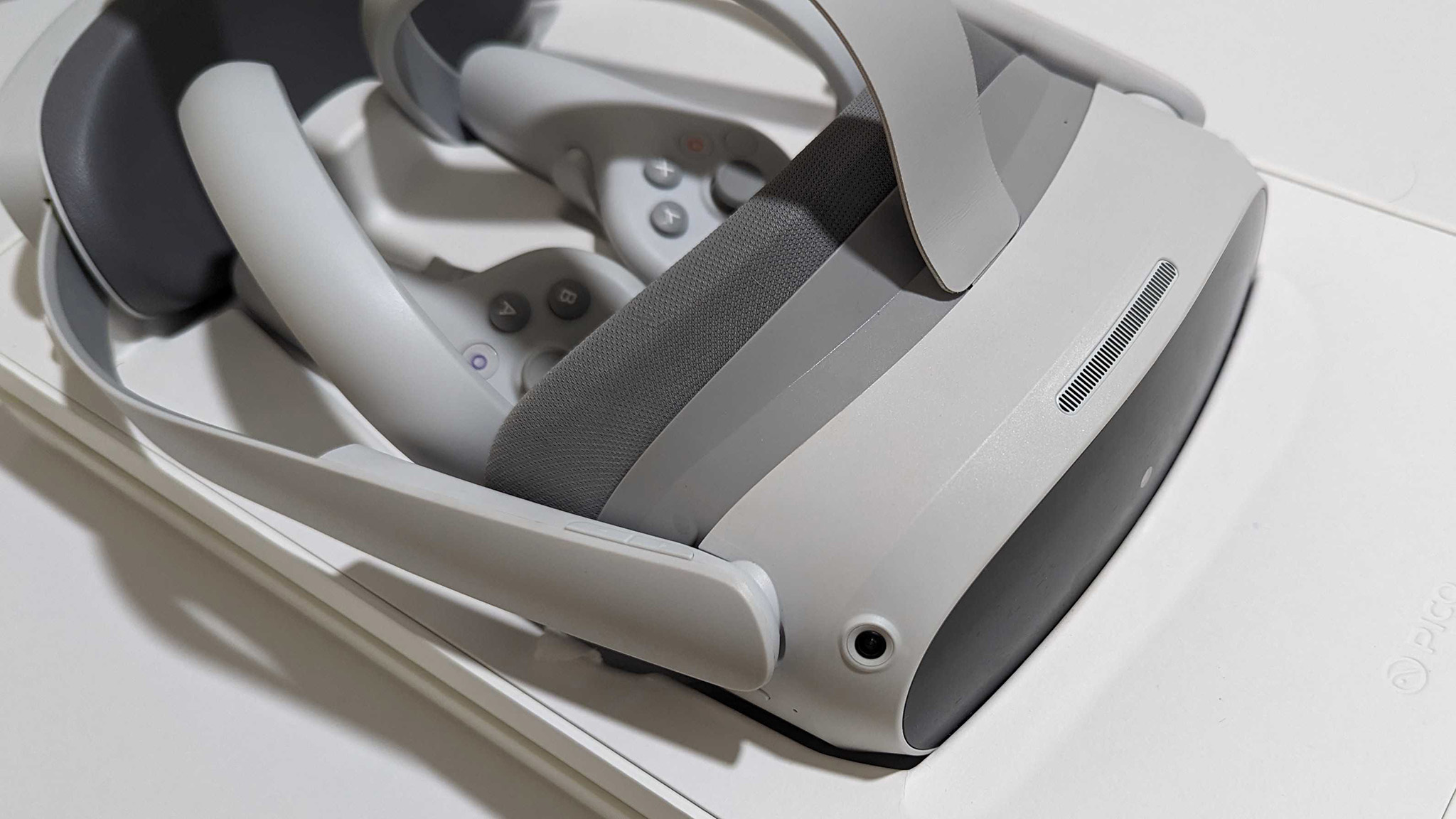Pico lost the first battle, but it could still win the VR war
Pico isn't dead, it's just respawning.

For yet another year, the Meta Quest 2 topped the charts as one of the top-selling video game items on Black Friday and Cyber Monday. It's a success story we've seen repeated time and time again, and it makes me wonder why we don't see more competition for Meta's VR consoles.

In his weekly column, Android Central Senior Content Producer Nick Sutrich delves into all things VR, from new hardware to new games, upcoming technologies, and so much more.
There's the PlayStation VR2, but it's not really direct competition for most of Meta's headsets because of the price, despite sharing quite a few of the best VR games. Sure, the headset costs as much as a Meta Quest 3, but it requires a $400+ PS5 to run the show, a cable, and it doesn't support mixed-reality experiences.
The most obvious direct competition is the Pico 4, which just saw a killer Black Friday sale that dropped 30% off the regular price and included three new games. That deal is actually still available in Europe, and it makes choosing a Pico over a Quest actually seem like a viable option.
In fact, the Pico 4 is a truly great headset, particularly when used for PCVR streaming. It's cheaper than the Quest 3 yet offers the same lens clarity and high-resolution display. So why aren't we seeing more success stories from the Chinese company? Let's take a look.
Writing on the wall

Earlier in November, parent company ByteDance laid off hundreds of Pico employees and brought the software team under the ByteDance umbrella. The hardware team remains at Pico studios, including the R&D division that's working on the next generation of Pico VR headsets.
But the reliable leaker, Alex from CHN (VR Panda), posted on X (Twitter) earlier in November that two Pico projects were delayed due to the layoffs, then followed that up earlier this week, saying the Pico 5 was canceled.
Alex works for VR Panda, a company that makes accessories for VR headsets like the Quest 3. Alex posted many images early on as he and his company worked on Quest 3 accessories using an actual unit well before it was announced. He also leaked new Pico 4 controllers early and seemed to have great connections within the industry.
Be an expert in 5 minutes
Get the latest news from Android Central, your trusted companion in the world of Android
But, while most of the Pico news seems negative, there's actually a slight silver lining to be found. On October 21, Alex posted that ByteDance was phasing out its Pico business entirely. Yet, what we saw was just a deep cut to Pico instead of an all-out erasure of the business.
We reached out to the company and a Pico spokesperson told us that Pico was not "able to comment on any rumors, and that PICO will announce new products when they are ready."
Hundreds of Pico employees got laid off earlier in November, yet, the company is still pushing forward with its efforts in Europe and China.
To further complicate things, Android Central has recently been able to obtain a Pico 4 review unit from the company even after the layoffs occurred. Companies that lay off lots of employees with the goal of eventually phasing out the business don't send out review units to publications. They end support and call it a loss.
Pico's actions tell me that they're working on restructuring after high hopes that didn't pan out. The company just launched a new holiday bundle that includes Arizona Sunshine II, Green Hell VR, and Warplanes Battles over Pacific for free.
Arizona Sunshine II, in particular, proves the company is still working with partners to launch new flagship games to help convince people its platform is worth buying into.
(There's no) Getting over it

Pico's woes began at GDC this past March, where the company was expected to announce the full U.S. launch of the Pico 4. It's clear the company was pinning a lot on this launch, and the seemingly sudden decision to pull back began a chain reaction that put Pico in the position it's in today.
All of this happened because Pico is owned by ByteDance, the same company that owns and runs TikTok. As you're probably aware, TikTok has been through the wringer of U.S. government scrutiny, mainly for political reasons more than anything.
We saw the exact same scenario unfold five years earlier when the U.S. government went after Huawei, eventually causing the company to shrink from its position as a clear leader in the smartphone market to one that can barely create 5G phones for sale today.
If any fingers can be pointed and blame assigned, it's to governments who are too busy playing politics instead of worrying about the actual safety and privacy of their own people.
The U.S. government hardly batted an eye when U.S.-run Facebook and Google were accused of spying on users and collecting too much data but went for the throat in an attempt to bury TikTok the moment they found out about identical user data collection methods.
The Pico/ByteDance issue reeks of the same political nonsense that sent Huawei to the grave.
But the biggest problem here is that ByteDance absorbed Pico's software division, which guarantees the company won't be launching any headsets in the U.S. for the foreseeable future.
If the U.S. government already doesn't trust a phone app from ByteDance, there's little to no chance it'll accept a VR headset run by software built by the company. Especially given the number of cameras on a VR headset.
That tells me that ByteDance has fully accepted its fate as the next Huawei of the tech world and is consolidating as much as possible since it no longer needs to hide behind Pico as a separate company. Pico is now ByteDance through and through.
ByteDance and Pico could have pulled an Honor and completely shed the ByteDance name and financial associations in order to pull off a proper global launch, and, quite honestly, I have no idea why they didn't go this route. Now that we're hearing a Meta Quest 3 Lite may launch in China, things are going in the complete opposite direction I expected just a year ago.
And that brings me full circle. With Pico firmly out of the picture in the U.S., will we ever see any major competition for the Meta Quest 3 in the headset's lifetime? Unfortunately, I don't think so. And that is, ultimately, bad for everyone.

